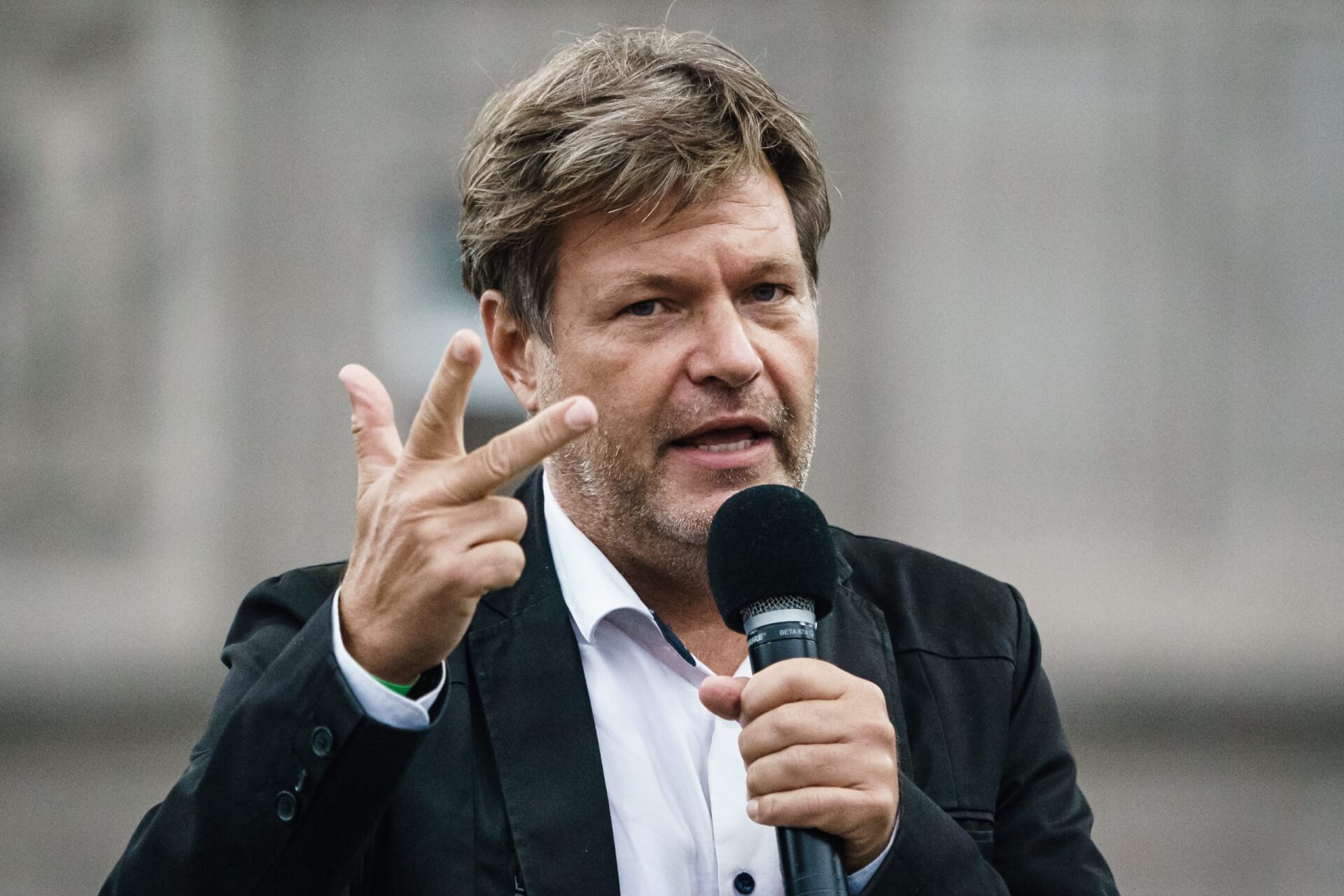German Vice-Chancellor Robert Habeck urged India to denounce Russia’s invasion of Ukraine, saying it could potentially enhance bilateral relations if India said, “this is an aggression.”
In an interview with DW during his three-day visit to India, Habeck remarked on India’s stance in the Russia-Ukraine war, saying, “you can’t stay neutral if there’s injustice.”
Robert Habeck said that Germany seeks closer economic and business corporation with India, but added that he will be very happy if New Delhi acknowledges that "it's Putin's war." | Louis Oelofse #Diplomacyhttps://t.co/DTKa5HIn2e
— The Wire (@thewire_in) July 21, 2023
On India’s Stance in Ukraine War
In his opening remarks, Habeck stated, “There’s always an aggressor and one that is the victim, and if you say ‘I don’t distinguish between aggressor and victim,’ in a way, you don’t reflect the real situation.”
While Habeck praised India’s “tradition and partnership with Russia,” he stressed that the country cannot remain neutral while the war is ongoing.
Habeck emphasised how a change in India’s stance on Russian aggression may strengthen bilateral relations. “I would be very glad, and it would even help in our relationship, if India at least finds clear language and says this is an aggression, it’s a one-sided aggression, it’s Putin’s war,” he stated.
Additionally, Habeck also discussed Western sanctions and India not joining the price cap imposed on Russia’s oil by the G7:
“The sanctions system means that we haven’t banned the trade of oil, but there’s a price cap on it. That means that you are allowed to buy crude oil and refine it, this is within the sanctions system, but making money out of it, bringing more money to Russia, using this sanctions system to benefit from it is not the idea of it.”
Indian PM Narendra Modi claimed in a recent interview with the Wall Street Journal (WSJ) ahead of his departure for a historic State Visit to the US that India was on the side of peace in the ongoing Russia-Ukraine war.
“Some people say we are neutral in the Ukraine conflict [...] But we are not neutral. We are on the side of peace.” Modi stated.
German Vice-Chancellor Robert Habeck, while speaking in Delhi, said Germany's partnership with China is "complicated" and it cannot decouple as the Asian country is its biggest trading partner.
— IndiaToday (@IndiaToday) July 20, 2023
(@geeta_mohan) https://t.co/lRX33fldMw
On Germany’s Economic Relations in Asia
According to a German statement issued before the visit, “Closer cooperation, especially in renewable energies and green hydrogen, holds a lot of potential for both sides and can increase our resilience and economic security.”
Despite the tensions over Ukraine, Habeck’s visit to India moves towards diversifying Germany’s economic ties in Asia away from China. During the interview, Habecks said he remains hopeful about a potential partnership with India in the energy sector.
“Due to Russia’s unprecedented war on Ukraine,” Habeck said, “we learned a painful lesson that being dependent on only one country — in this case, on energy — can be dangerous.”
In the interview, Habeck discussed the relationship with China, “it’s okay to have a big partnership with China, India also has one, but being dependent on one [partner] is not so good. So, we are searching for new partners.”
On Skilled Workers in India
Habeck also stated that he is keen to tackle Germany’s skilled workers shortage, a significant concern for German companies. “We have a lack of workforce in Germany, in India [there are] a lot of skilled, talented, well-educated people, you’re very welcome,” he stated.
Germany passed a new immigration law last month to attract more people from outside the European Union to come to Germany for employment. The law features a point-based system that reduces admission barriers for candidates depending on their professional qualifications, age, and language proficiency.
German Labour Minister Hubertus Heil is also in India this week, hoping to recruit more nurses amid a shortage of care workers in Germany.
"We destroyed a lot of bureaucracy" says Germany's Labor Minister Hubertus Heil. He believes a recent law will make it easier for skilled workers to come and work in Germany. Heil is currently in India ahead of a meeting of G20 labor ministers. pic.twitter.com/cm3lWQIxmZ
— DW Politics (@dw_politics) July 18, 2023
India, EU Free Trade Agreement
After inaugurating the Indo-German Business Forum titled “Inviting Innovation: Transforming the Economy for a Shared Sustainable Future”, Habeck spoke about the ongoing negotiation between India and the EU and described it as “difficult.”
“India-EU free trade agreement (FTA) is so hard to negotiate because our economic traditions are so different and expectations are so different. One side is expecting more openness and intellectual property and the other side is expecting more market access,” Habeck stated, adding that the challenging negotiations should not deter either party from proceeding with the FTA.
The EU and India have been negotiating an FTA for years. During a visit to India in February, German Chancellor Olaf Scholz expressed his openness to expedite these talks.

